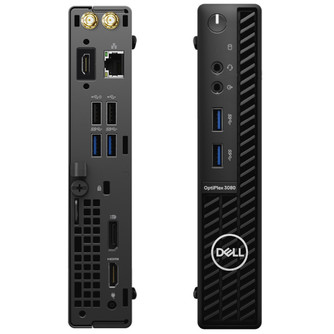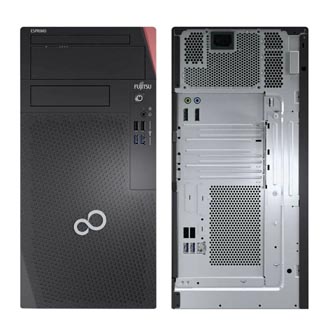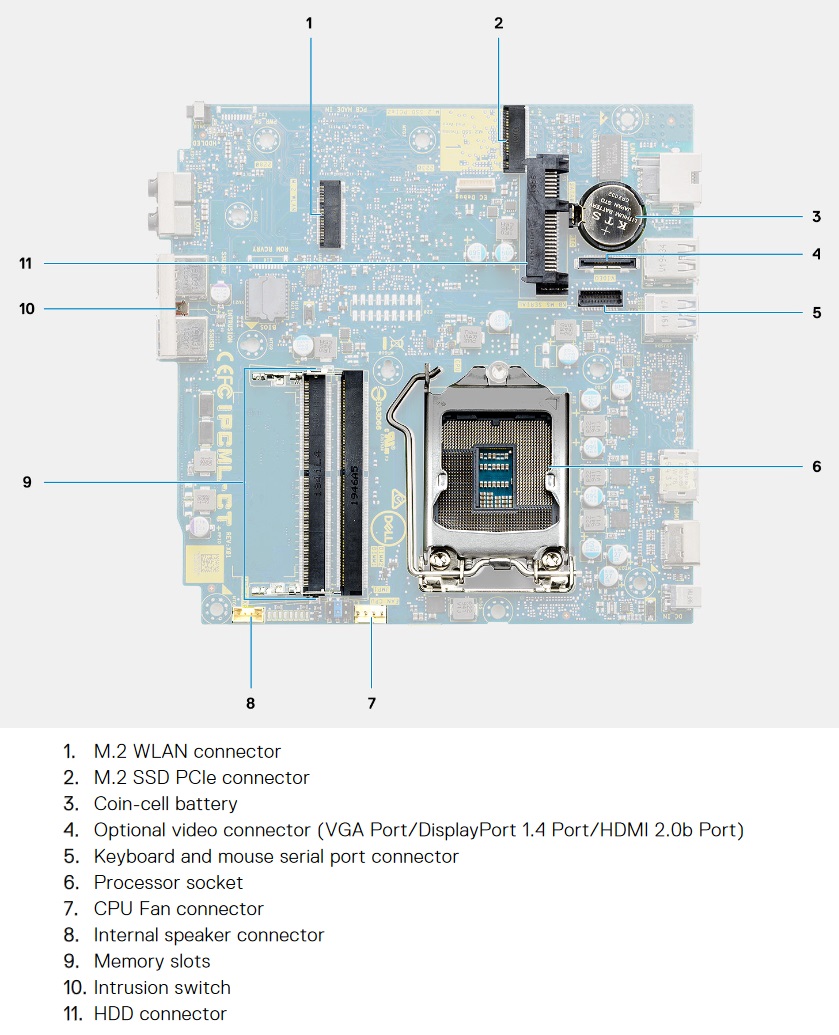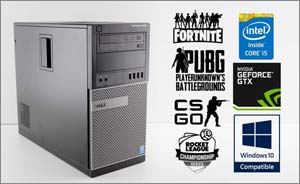Dell OptiPlex 3080M vs. Fujitsu Esprimo P5010
Comparison and Differences
Differences between Dell OptiPlex 3080M and Fujitsu Esprimo P5010
Both computers, the Dell OptiPlex 3080M and the Fujitsu Esprimo P5010, were released during the same year - 2020.
If you are looking for the smaller form factor the Dell OptiPlex 3080M is the right one for you. It is smaller than the Fujitsu Esprimo P5010 and will fit more easily under your desk.
Processor
The two models have the same generation of Intel processors. We think that the 10 generation of Intel Processors have enough power to execute all of the home and office tasks that most people will care to do.
Memory
Both models have have equal amount of ram slots (2 RAM). Usually two RAM slots are more than enough for most cases. However, the count should be taken into account when planning how much and what combination of RAM you are going to need for your system.
The Fujitsu Esprimo P5010 is using the faster 2933 MT/s RAM. The Dell OptiPlex 3080M is slower by supporting RAM speeds of up to 2666 MT/s. In addition, you will be able to install the same amount of RAM in both models, and most probably 64 GB of RAM will be enough for most people. However, if you will be needing more RAM, make sure to check other desktop models too.
Ports
In total the Fujitsu Esprimo P5010 has 8 USB ports. The Dell OptiPlex 3080M is inferior in this regard and packs 6 USB ports. In any case, if you miss USB ports, you can always purchase a USB hub. None of the desktop models has a USB 3.1 port (10Gb/s), so if you need a fast connection to your peripherals, like external Solid State Drive, you will need to look elsewhere.
DisplayPort is crucial for any desktop machine. It is good to see that both models are featuring DisplayPorts. However, the Fujitsu Esprimo P5010 comes with 2 ports, while the Dell OptiPlex 3080M has only 1. If you are planning to use multiple monitors, the Fujitsu Esprimo P5010 is the better choice.
The Dell OptiPlex 3080M comes with an HDMI port, while the Fujitsu Esprimo P5010 does not support the interface. Of course missing HDMI port is something that can be easily fixed with a good adapter (e.g. DisplayPort to HDMI).
SATA ports are placed on the system board and it is where you connect your HDD, SSD and Optical Disk Drives. More SATA slots will allow you to have more drives running at the same time. In this regard the Fujitsu Esprimo P5010 is better equipped as it comes with 3 SATA slot(s), while the Dell OptiPlex 3080M has 1 slot(s).
When your goal is to have the fastest SSD transfer speeds, an M.2 interface is crucial. Thus, it is good that both models have M.2 SSD slots. Today M.2 SSDs are not much more expensive than the average SATA drives, so it really does not make sense to invest in SATA drives anymore.
Make sure that the available M.2 slot supports the PCIe (also called NVMe) interface. This is important as there are M.2 slots which support only the inferior SATA III interface. For comparison, the SATA III interface has max speeds of 6Gb/s, while the PCIe 3.0 x4 will support speeds up to 32Gb/s!
Power Supply
Having a Power Supply Unit with high power rating is important, if you are going to use components which require extra power. The Dell OptiPlex 3080M comes with a decent 65 Watt PSU, but the Fujitsu Esprimo P5010 has a more powerful one rated at 300 Watts. Choosing either one depends on your specific requirements and use case. Also don't forget that some models might have more than one PSU option - try to always get the most powerful one, especially if you plan to upgrade to a powerful GPU.





